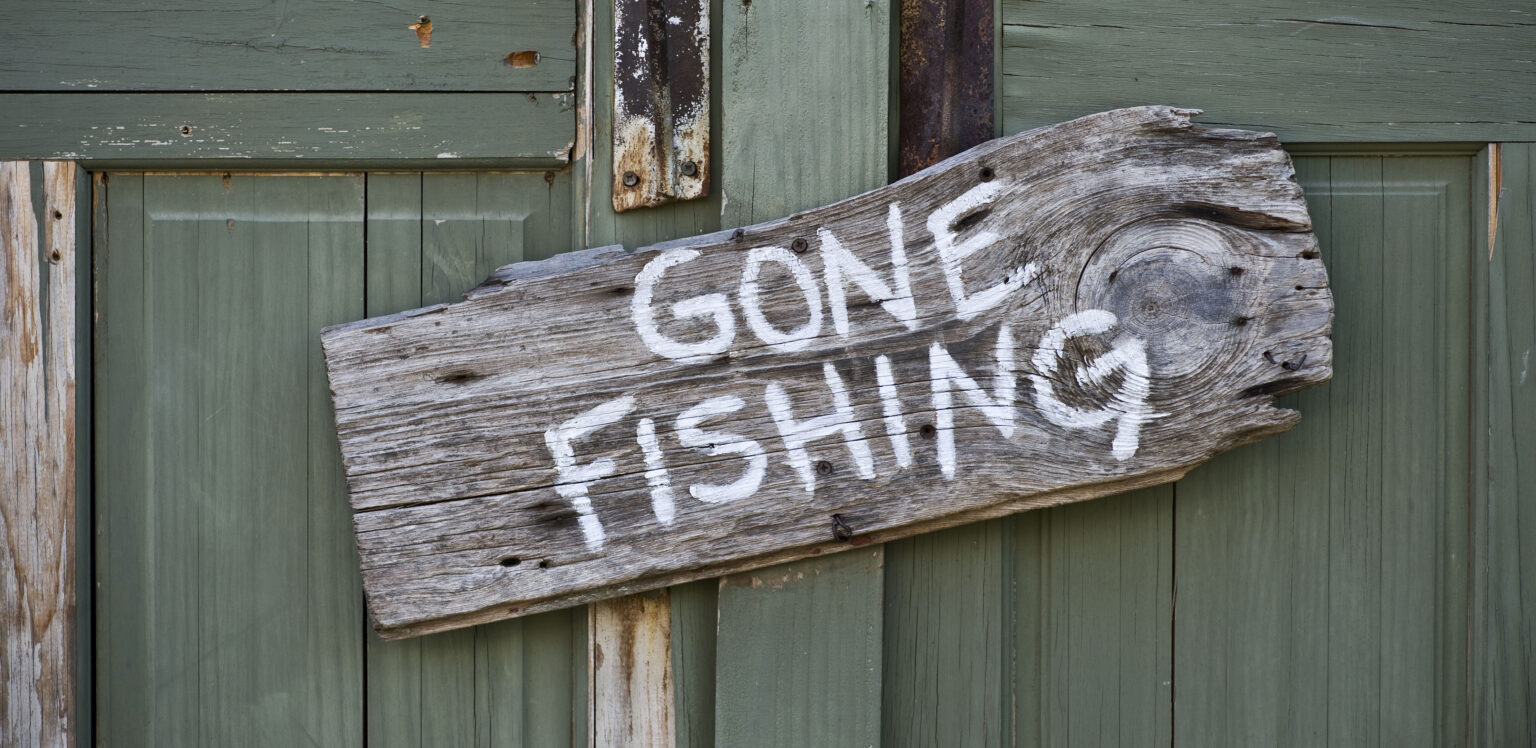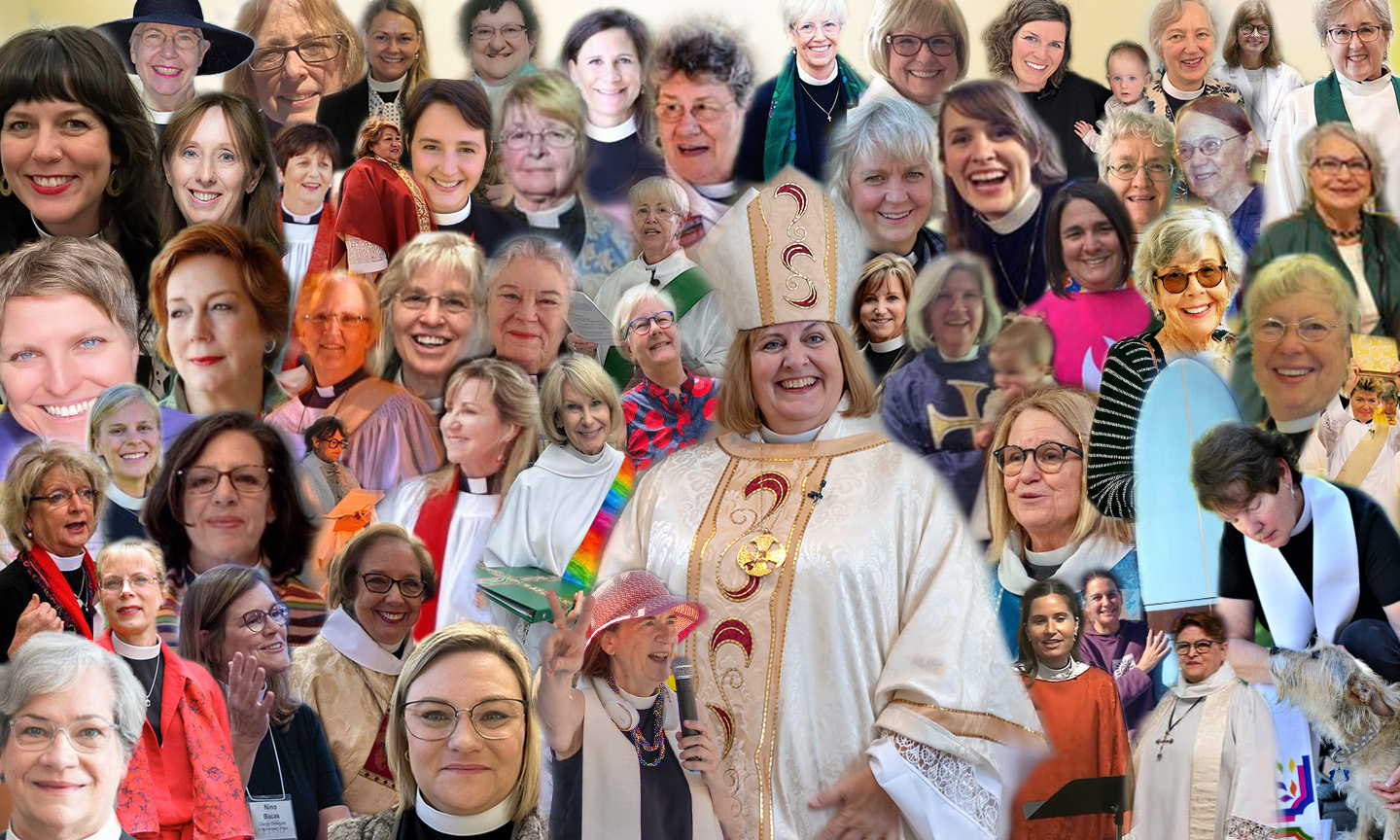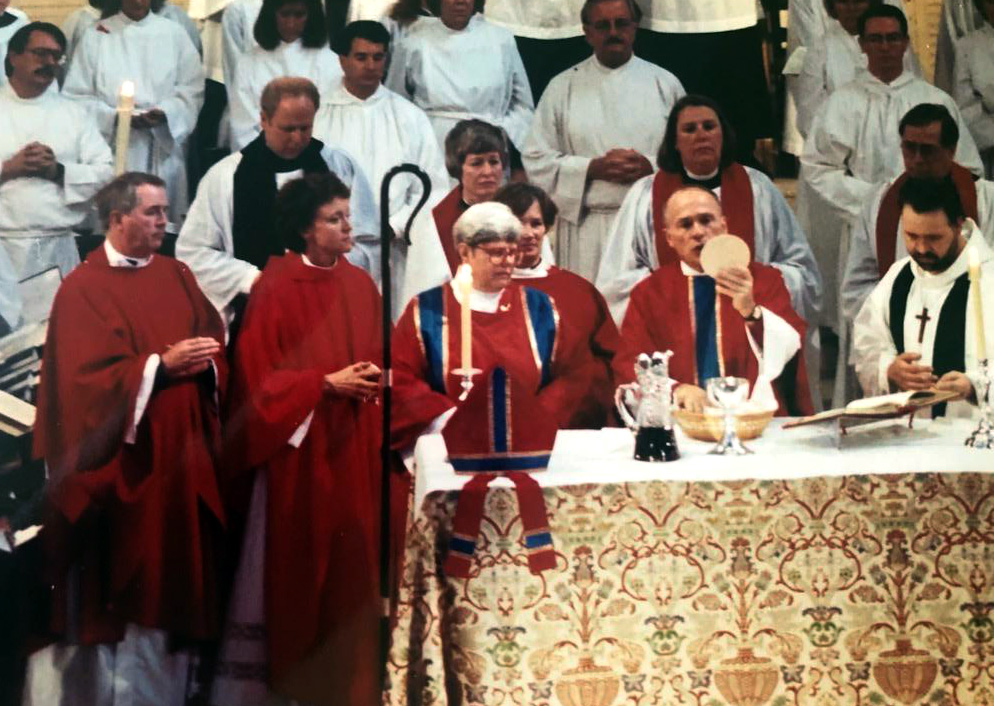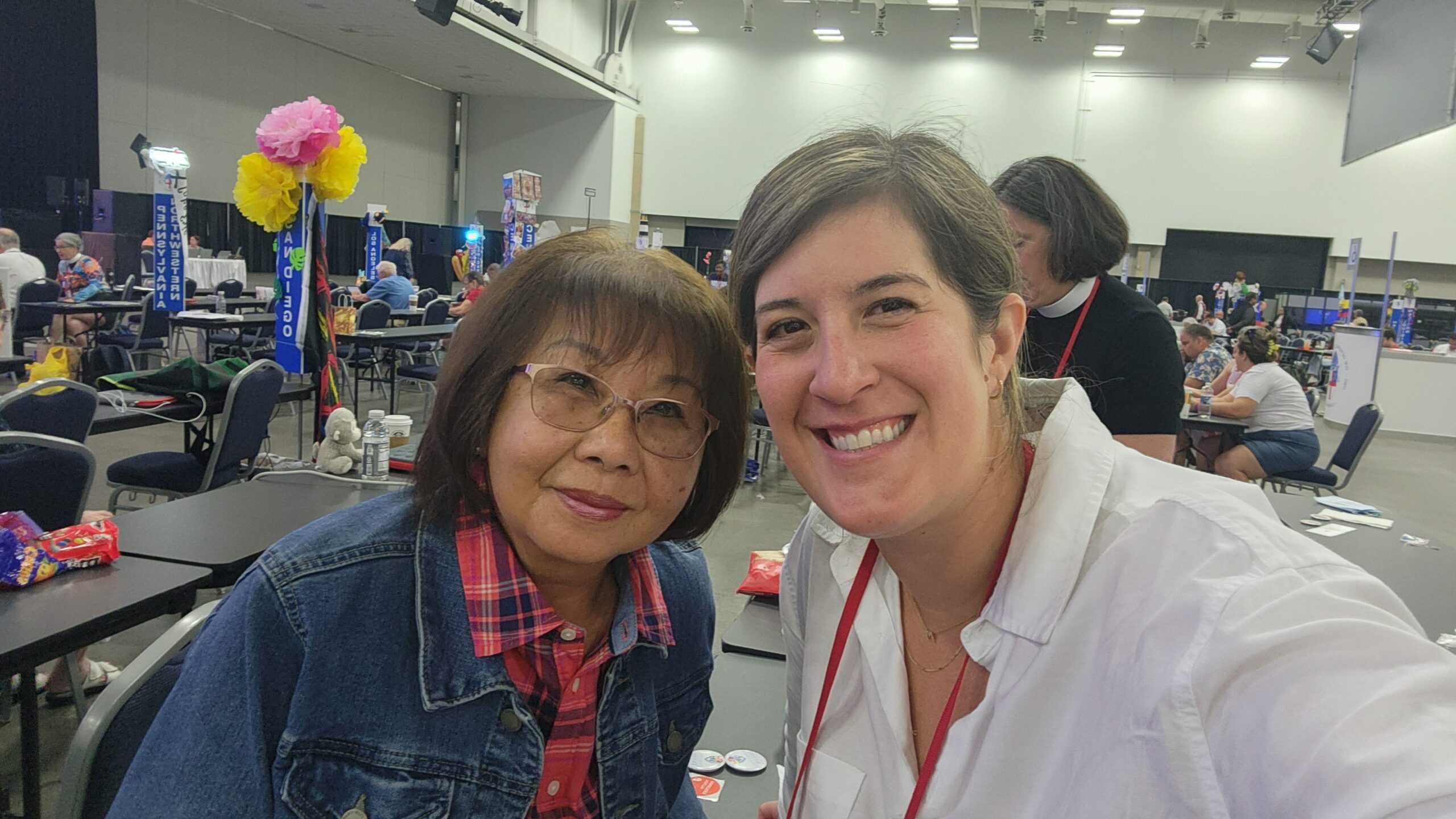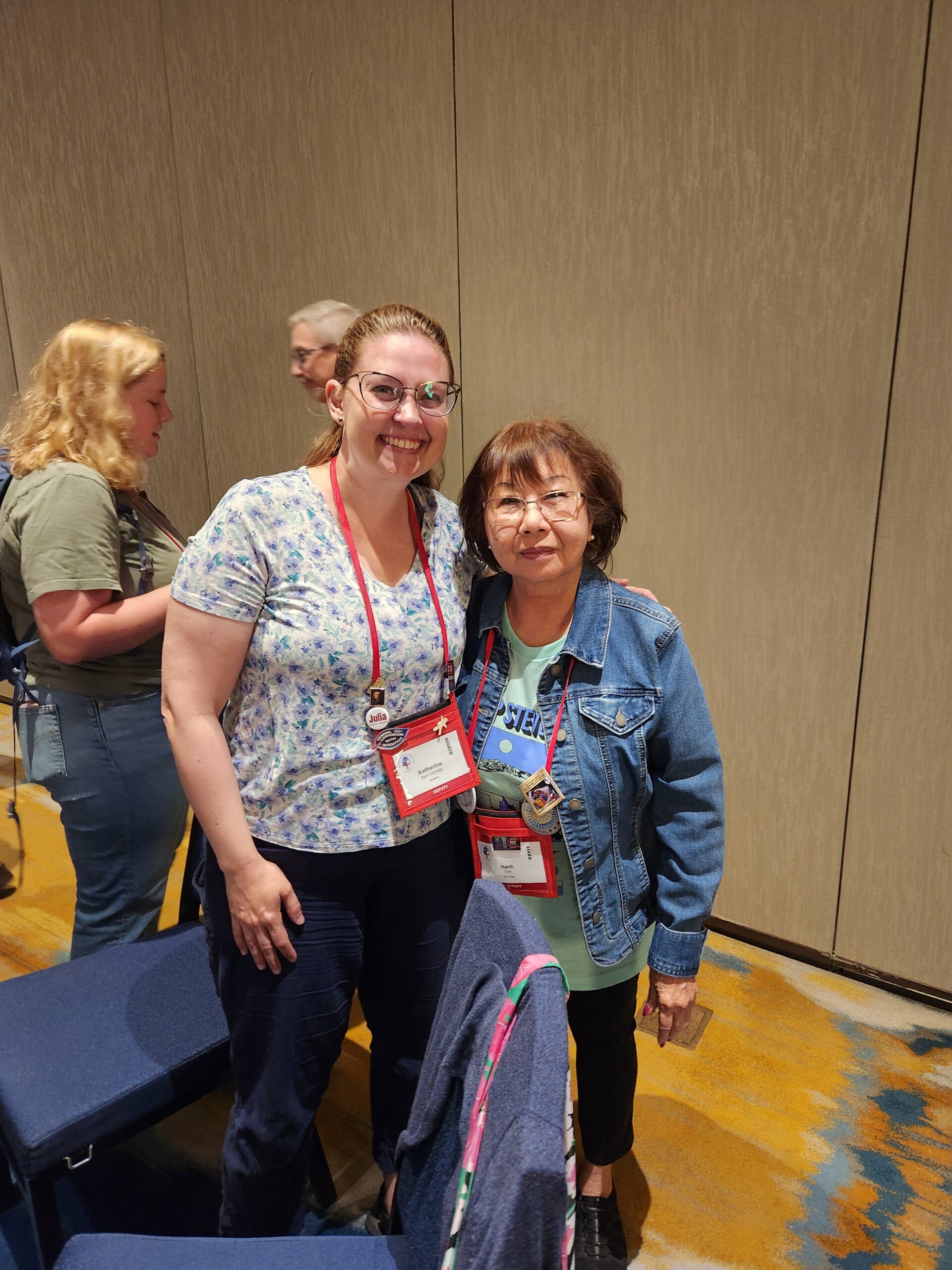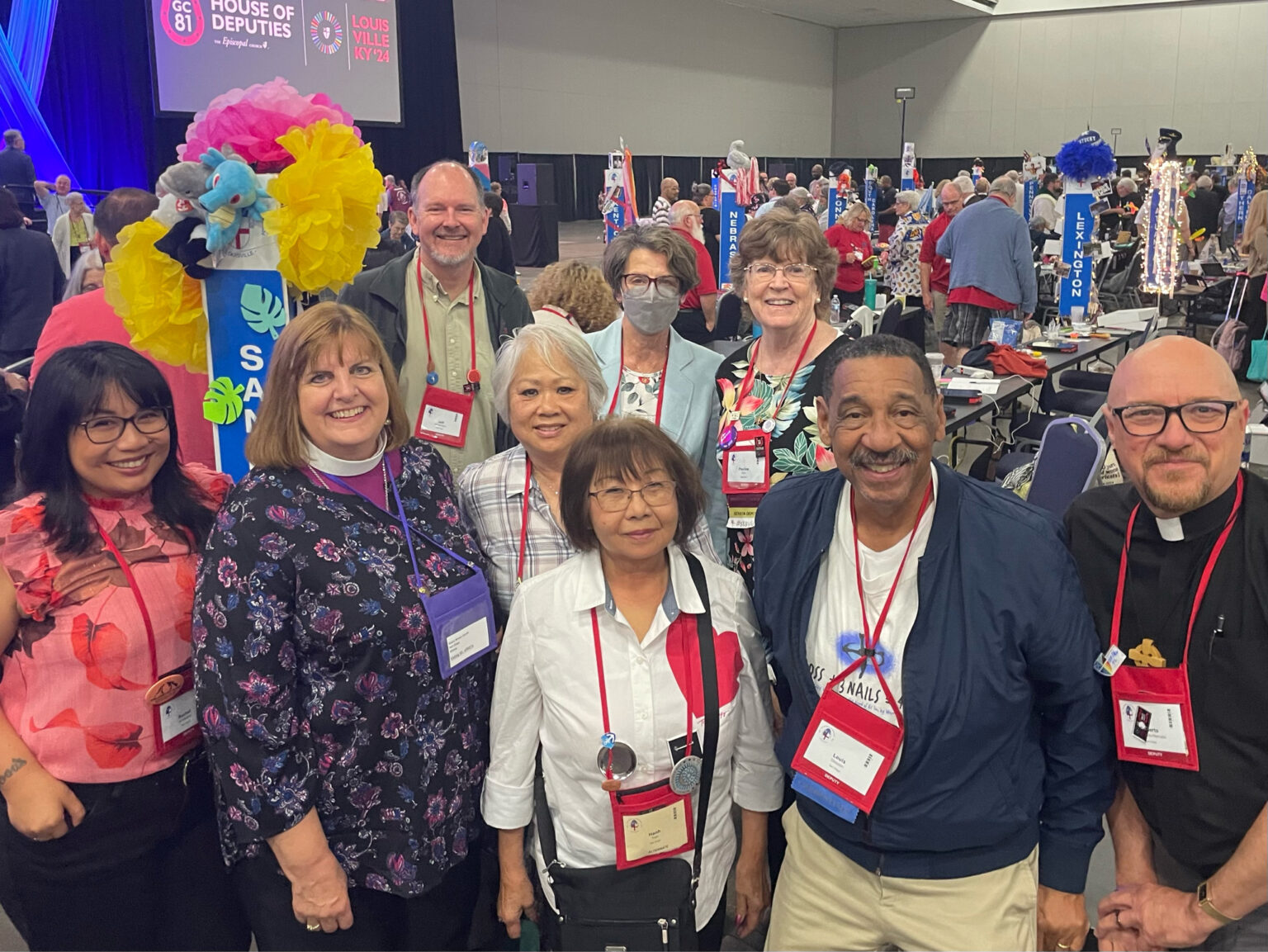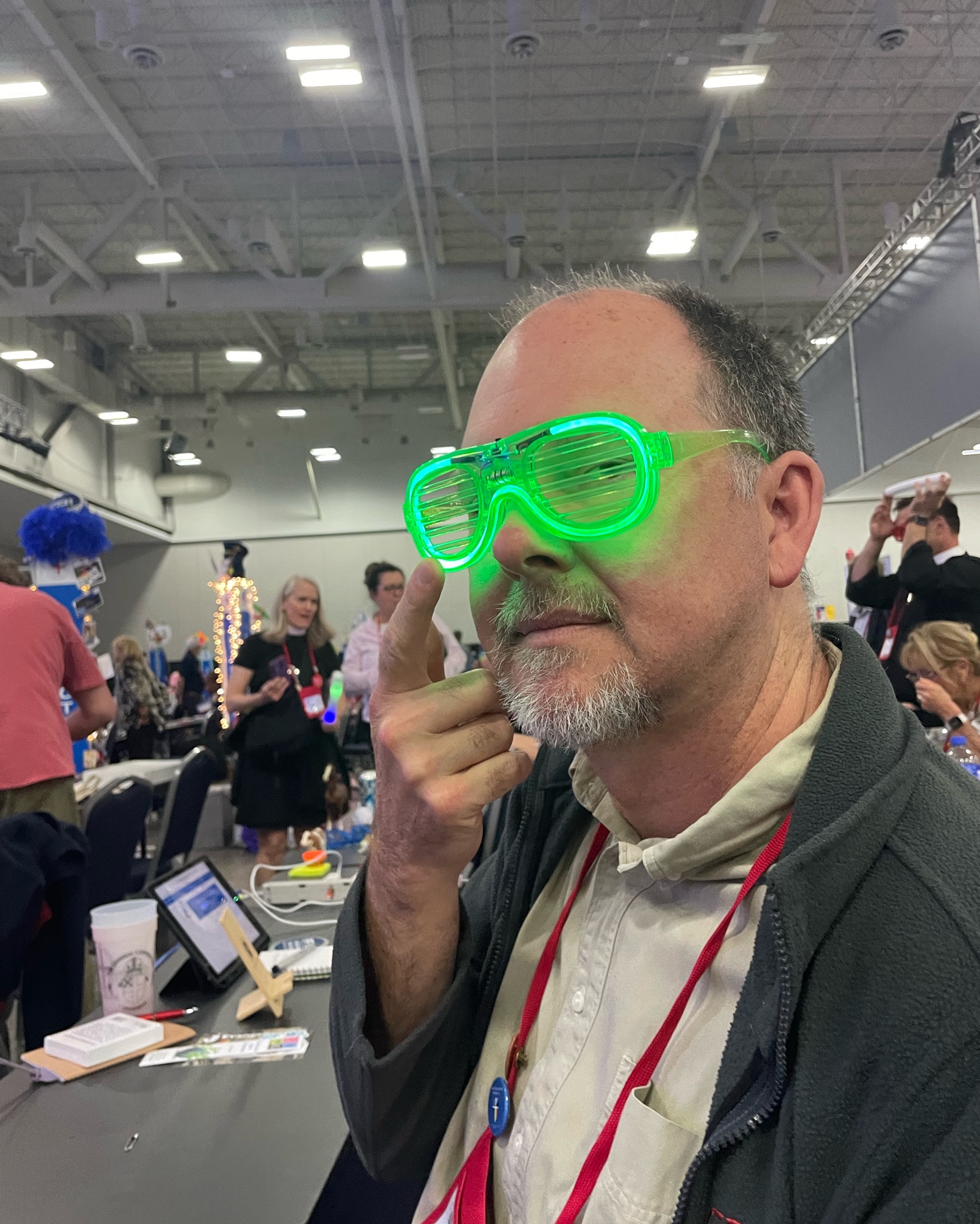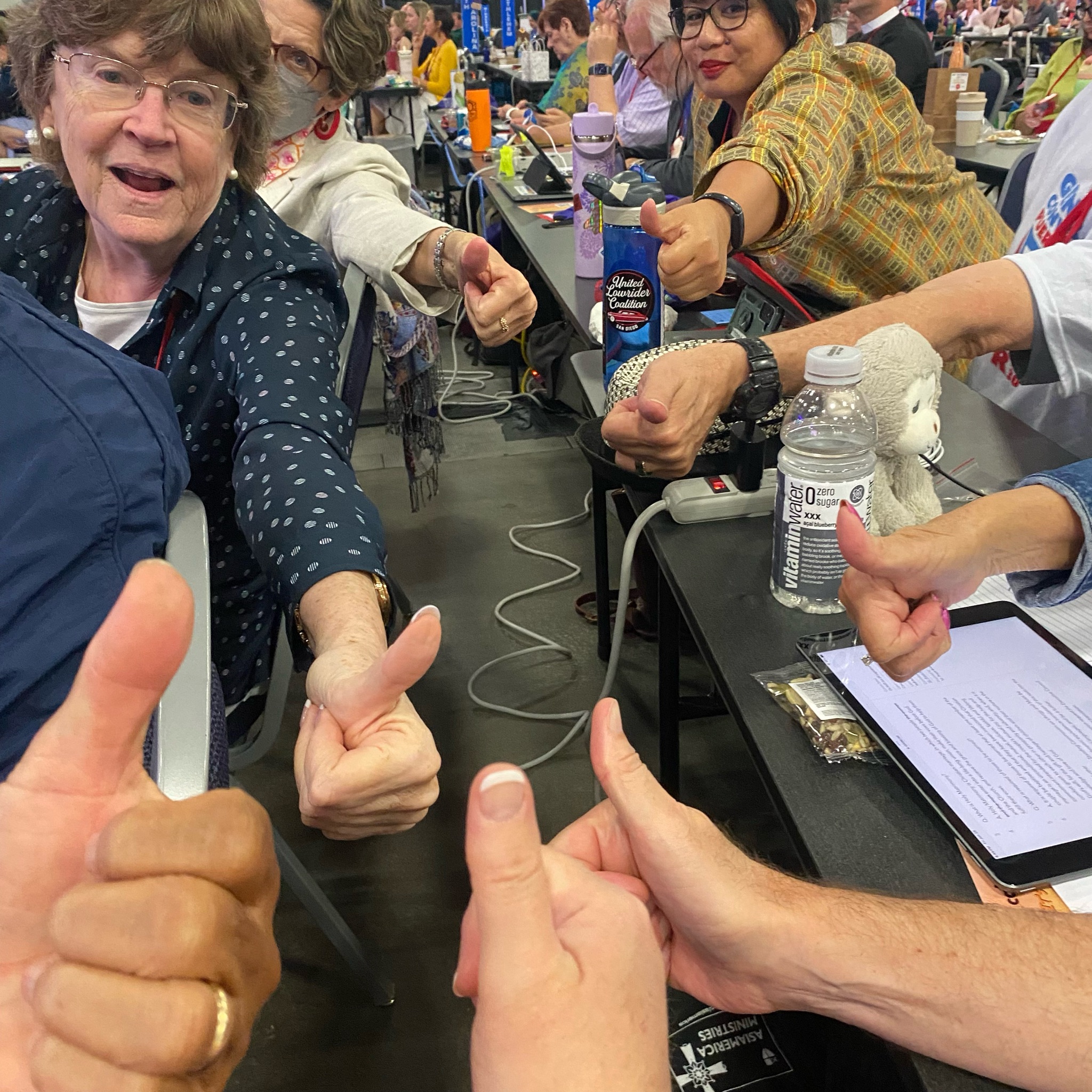Join in Supporting Students with Agape’s Ministry of Presence
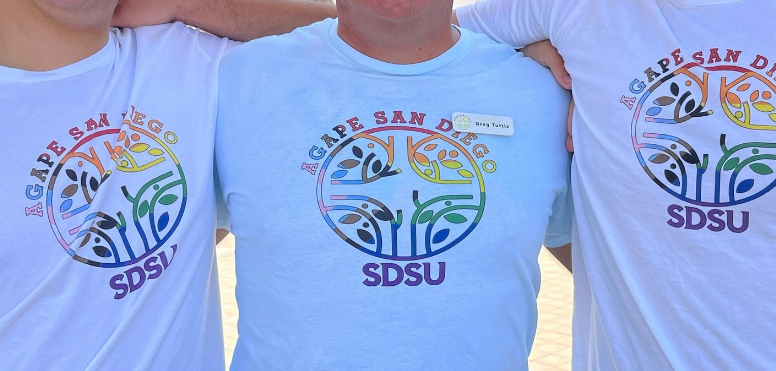
Standing next to Agape’s vertical banner, I was one of the nearly 2,000 people catching some shade under the San Diego State University’s Love Library. I listened to a father from Orange County who is preparing his daughter (and himself) for her freshman year of college. He was about to release his only child into an unfamiliar environment, and I heard, as he spoke, his anxiety manifesting some huge feelings. He trusted me in this holy moment. We talked for a bit longer and prayed together. After I handed him an ice-cold sparkling water, he tapped the rainbow heart on our banner and said, “I don’t totally agree with you, but I really like what you’re about.”
 San Diego State University offers New Student Orientation three times a week during July for parents and students to explore the campus, meet support organizations, and learn more about the next season in both of their lives. We call it ‘Tabling.’ Agape San Diego (our Episcopal-Lutheran Campus Ministry) tables with Hillel, the Jewish Cultural Center, and The Newman Center, the Roman Catholic community. Tabling is always a lot of work and always worth it. Sharing space with the other religious organizations on campus and welcoming new students to their new homes is a privilege. It gives me the opportunity to guide these young adults toward something truly fulfilling.
San Diego State University offers New Student Orientation three times a week during July for parents and students to explore the campus, meet support organizations, and learn more about the next season in both of their lives. We call it ‘Tabling.’ Agape San Diego (our Episcopal-Lutheran Campus Ministry) tables with Hillel, the Jewish Cultural Center, and The Newman Center, the Roman Catholic community. Tabling is always a lot of work and always worth it. Sharing space with the other religious organizations on campus and welcoming new students to their new homes is a privilege. It gives me the opportunity to guide these young adults toward something truly fulfilling.
It makes me think about the middle school teacher who opens their classroom during lunch to create a safe space for students amid the unrelenting ferocity of adolescence. College students are just as vulnerable, just as lost, just as aching for friends and mentors… not drinking buddies. And I’m here to tell parents, students, or anyone who will listen that Agape provides a safe space for college students to find community.
That dad had all of the emotions of dropping his child at kindergarten as he shouldered all that this transition represents. The difference is that this time their ‘kindergartener’ is eager to explore adulthood, and Agape San Diego is ready to help balance college life with rest, reflection, and a healthy Christ-centered community.
Agape is a place for rest and connectivity. Every Wednesday, Agape provides shade, bean bag chairs, and Mexican blankets under banners that read “REST HERE – FREE PIZZA” in rainbow letters. We pride ourselves in creating a safe, approachable, no-strings-attached place to just be people together. Every week, Pastor Darin Johnson, our Executive Director, students, and I set up this space along with a sandwich board that reads, “You Are Loved, Have Some Pizza;” the responses we receive from students are touching. “What do I have to do?” – “Nothing,” we respond. 
“You’re the people I hoped to meet at college,” said Morgan, a Theater Arts Major after about a month of attending. That was two years ago, and now she’s a vital member of our community.
Episcopal-Lutheran Campus Ministry has evolved through our 70 years at SDSU and, now, Agape San Diego is known as the “Nice People with Free Pizza,” a title we wear with pride. Jesus is present in every moment, and I can’t think of a better way to share his love. Whether it’s Pizza on Wednesdays, Snow Cones on Thursdays, or hosting events on and off campus like sailing on Mission Bay and weekend retreats at Camp Stevens–our ministry is one of presence. We meet students where they are, providing a supportive and accepting community. In all these spaces, we listen because listening is the most important thing that we can do with students and Agape provides a place for listening through rest, comfort, and full bellies.
You can support SDSU students, like Morgan, by becoming a member of our Sustaining Circle as a monthly giver or consider sponsoring our work as a Pizza Angel. Whether it’s a one-time donation of $50 to provide pizza & drinks for a week or $200 for a month, your gift makes a difference in these students’ lives. Agape is also working to realize our mission of supporting students through housing and community with our campaign of Building Sustainable Campus Ministry. Click here for more information.
If your church community would like to hear more about Agape and its ministry of presence, I am happy to share more about Agape San Diego at a church forum or over smiles and handshakes during coffee hour. To learn more about this opportunity, please email greg@agapesandiego.org

